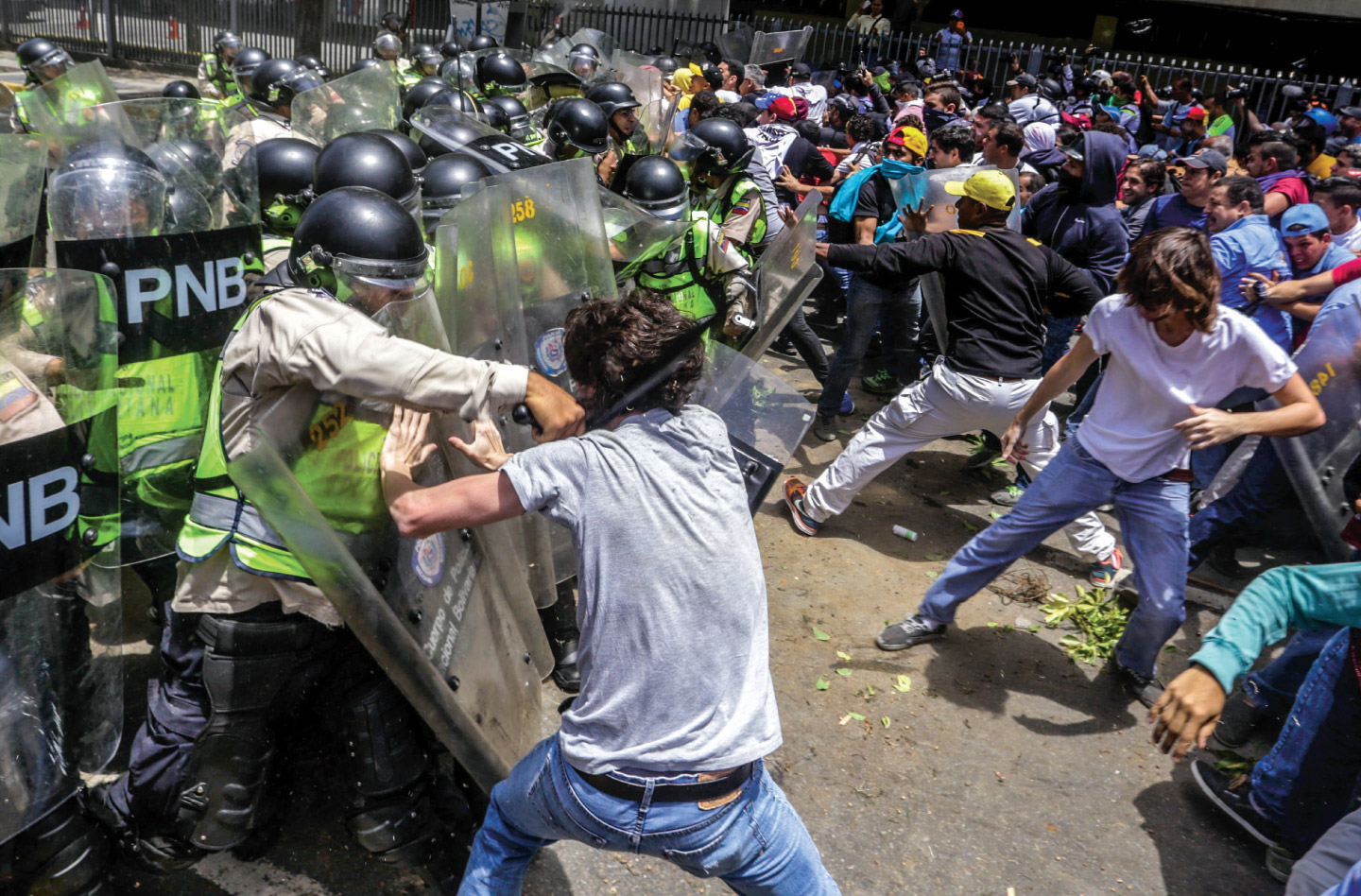Kevin Lara Lugo died last July, on his 16th birthday.
With his mother and her boyfriend out of work and penniless, the teenager had spent the previous day foraging for food in an empty lot near his home in Maturín, Venezuela. The bitter yuca* he found and ate made him gravely ill and sent him to the hospital.
Hours later, Kevin was dead on a gurney, his mother watching helplessly as doctors rolled his lifeless body away. She says the hospital lacked the most basic supplies needed to save her son.
Kevin’s death and his family’s struggle to survive are symbols of everything that’s gone wrong in Venezuela, a once-prosperous nation that’s now on the brink of collapse. (see “One Family’s Tragic Tale")
The economy has ground to a halt. Crime is out of control. And the former democracy seems to be descending into dictatorship, as President Nicolás Maduro tries to cling to power.
“This goes beyond an economic and political crisis,” says Ian Vásquez, a Venezuela expert at the Cato Institute in Washington, D.C. “This has turned into a humanitarian crisis.”
Venezuela’s turmoil has been a long time in the making. With the world’s largest proven oil reserves, it was once one of Latin America’s richest nations. But there’s also been vast inequality between the rich and the poor. In 1998, those poor people rallied around a controversial socialist politician named Hugo Chávez and helped elect him president.
His mother and her boyfriend were out of work and penniless, so the teenager had spent the previous day foraging for food. At an empty lot near his home in Maturín, Venezuela, he found and ate some bitter yuca. It made him gravely ill and sent him to the hospital.
Hours later, Kevin was dead on a gurney. His mother watched helplessly as doctors rolled his lifeless body away. She says the hospital lacked the most basic supplies needed to save her son.
Kevin’s death and his family’s struggle to survive are symbols of everything that’s gone wrong in Venezuela. It was once a prosperous nation. Now it’s on the brink of collapse. (see “One Family’s Tragic Tale")
The economy has ground to a halt. Crime is out of control. And the former democracy seems to be descending into dictatorship, as President Nicolás Maduro tries to maintain power.
“This goes beyond an economic and political crisis,” says Ian Vásquez, a Venezuela expert at the Cato Institute in Washington, D.C. “This has turned into a humanitarian crisis.”
Venezuela’s turmoil has been a long time in the making. With the world’s largest proven oil reserves, it was once one of Latin America’s richest nations. But there’s also been vast inequality between the rich and the poor. In 1998, those poor people rallied around a controversial socialist politician named Hugo Chávez. They helped elect him president.

